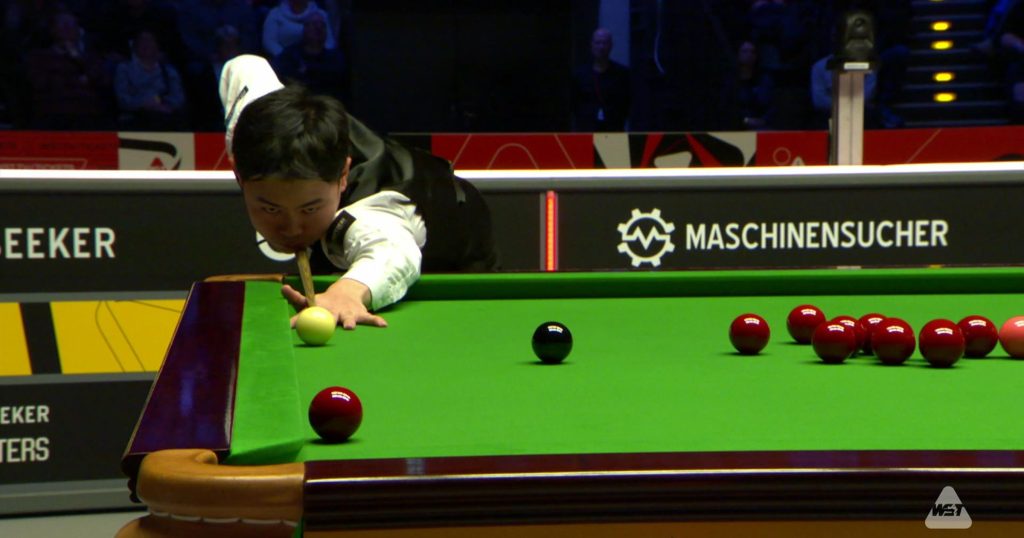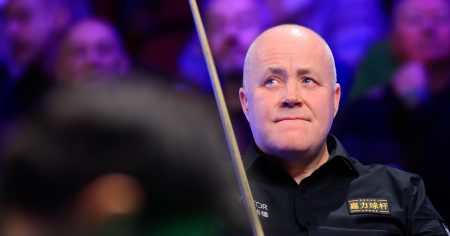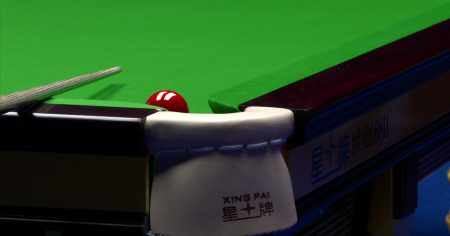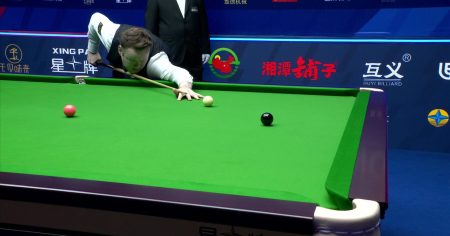The tranquility of the Tempodrom in Berlin, host to the 2024 German Masters snooker semi-final, was shattered during a pivotal moment in the match between Barry Hawkins and Yuan Sijun. The hushed atmosphere, punctuated only by the gentle click of snooker balls and the occasional murmur of the crowd, was abruptly pierced by the jarring ring of a mobile phone. This unexpected disruption occurred as Hawkins, a seasoned professional known for his composure under pressure, was meticulously lining up a crucial shot. The incident, a stark contrast to the typically controlled environment of professional snooker, immediately threw the player off his stride, interrupting his concentration and potentially altering the course of the frame, and perhaps even the match itself. In the highly focused world of professional snooker, even the smallest distraction can have a significant impact, underscoring the importance of maintaining a strictly controlled and respectful environment. This incident highlighted the growing tension between the digital age and the traditions of a sport that demands intense focus and concentration.
The disruption caused by the ringing phone serves as a microcosm of the increasing challenges faced by athletes in maintaining focus in a world saturated with technology. While snooker, with its quiet intensity, might seem particularly vulnerable to such disturbances, the issue of unwanted interruptions and distractions extends across a wide spectrum of sports. Tennis players contend with camera shutters and crowd noise, golfers grapple with the rustling of spectators and distant traffic, and even athletes in more isolated disciplines like archery and shooting must contend with the potential for intrusive thoughts and distractions from both internal and external sources. The incident during the Hawkins-Sijun match highlights the pervasive nature of these challenges and the need for athletes to develop strategies for managing distractions and maintaining focus in high-pressure situations. This underscores the increasing importance of mental resilience and the ability to compartmentalize distractions in modern sports.
The incident also raises questions about the responsibility of spectators and event organizers in creating and maintaining an environment conducive to focused competition. While accidental disruptions are sometimes unavoidable, there is a shared responsibility to minimize potential distractions. Clear and consistent communication of expectations regarding mobile phone usage, combined with vigilant enforcement of these rules, is essential. This responsibility extends beyond spectators to include officials, media personnel, and even the players themselves. The expectation of a quiet and respectful environment should be a shared understanding, fostering a culture of mutual respect and ensuring that the focus remains squarely on the sporting contest itself. The incident in Berlin serves as a reminder that creating an optimal environment for competition requires a collective effort.
Beyond the immediate impact on the match, the ringing phone incident sparks a broader discussion about the evolving relationship between technology and sporting events. While technology has undoubtedly enhanced the fan experience through instant replays, real-time statistics, and interactive engagement, it has also introduced new potential for disruption. The ubiquity of mobile phones, while offering convenience and connectivity, poses a unique challenge. Finding a balance between embracing technological advancements and preserving the integrity and focus of sporting competition is a delicate balancing act. This requires ongoing dialogue and adaptation to ensure that technology enhances rather than detracts from the sporting experience for both athletes and spectators.
In the context of snooker, the incident highlights the sport’s unique vulnerability to disruptions. Unlike many other sports where continuous movement and action can mask momentary distractions, snooker requires prolonged periods of intense concentration. Players spend minutes meticulously planning and executing shots, their focus laser-beam sharp on the precise angles, spin, and speed required. Any interruption during these crucial moments can disrupt their rhythm, break their concentration, and potentially affect the outcome of the frame. The quiet, almost meditative nature of snooker amplifies the impact of even minor disturbances, making the control of the playing environment paramount to ensuring fair and uncompromised competition.
The incident in Berlin serves as a cautionary tale, underscoring the need for heightened awareness and proactive measures to mitigate potential distractions in professional snooker. While the immediate impact of the ringing phone on the Hawkins-Sijun match might be debatable, the larger issue it raises is undeniable. As technology continues to permeate every aspect of our lives, finding ways to create and maintain spaces free from unwanted interruptions becomes increasingly crucial. This requires a collective effort from all stakeholders – players, officials, spectators, and organizers – to prioritize the sanctity of the sporting arena and ensure that the focus remains firmly on the skill and sportsmanship of the athletes competing within it. The incident serves as a reminder that respecting the quiet intensity of snooker, and indeed any sport requiring focused concentration, is essential to preserving the integrity of the game.














